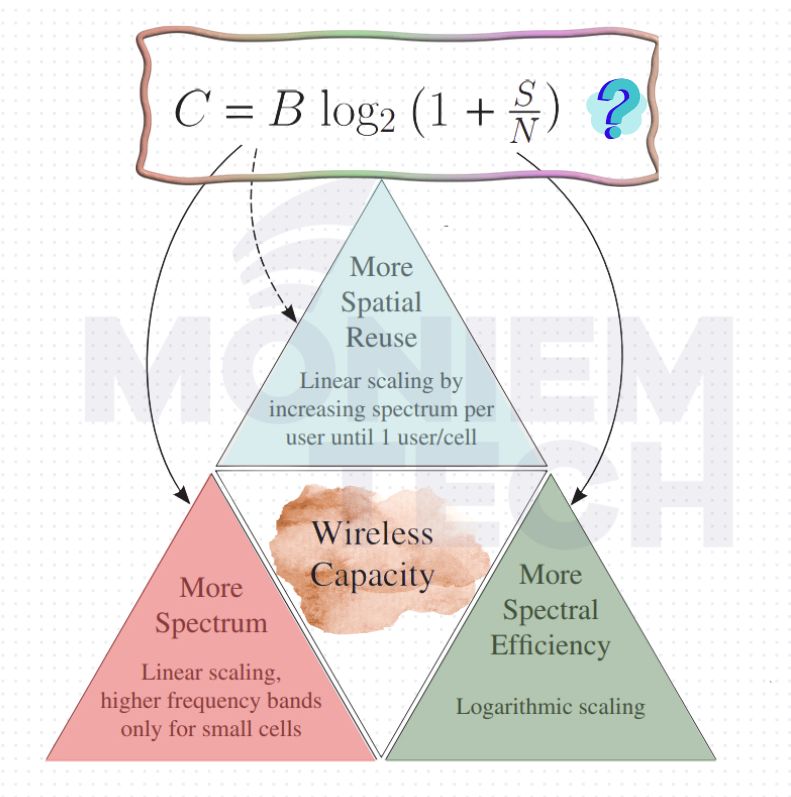The Answer is in “Shannon–Hartley theorem“
Shannon–Hartley theorem tells the maximum rate at which information can be transmitted over a communications channel of a specified bandwidth in the presence of noise.

- C: is the channel capacity in bits per second.
- B: is the channel’s bandwidth in bits per second, which defines the maximum amount of data that can be transmitted without noise.
- S: is the average received signal power measured in watts.
- N: is the average noise and interference power over the bandwidth measured in watts.
Capacity C can be scaled by increasing the bandwidth B per user and the signal-to-noise ratio S/N, or in a multi-user network, the signal-to-interference-plus-noise ratio (SINR). Addressing the bandwidth is a more promising approach since this results in a linear scaling compared to the logarithmic scaling when increasing spectral efficiency by improving the SINR.
